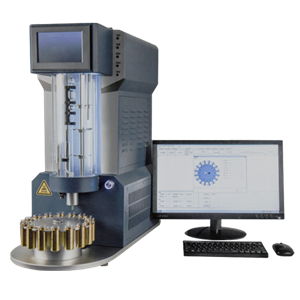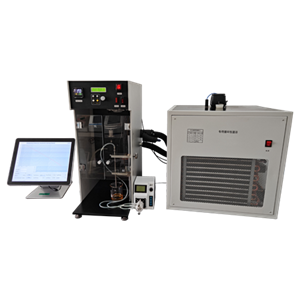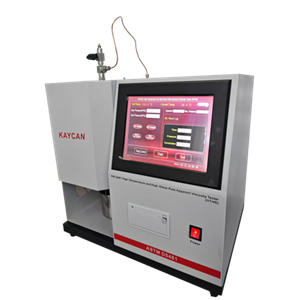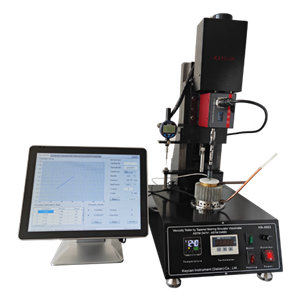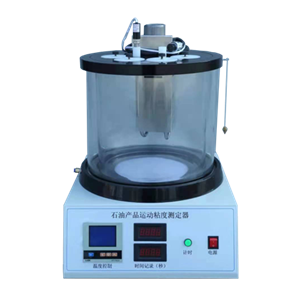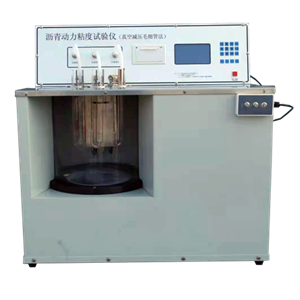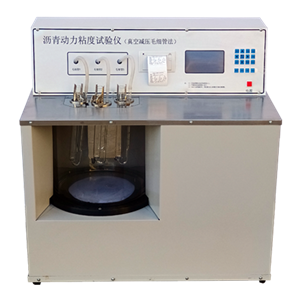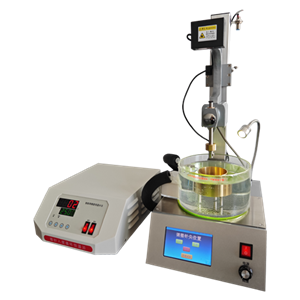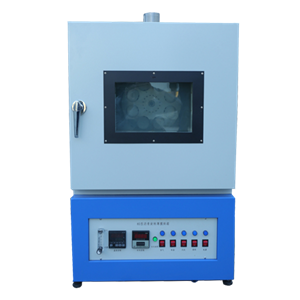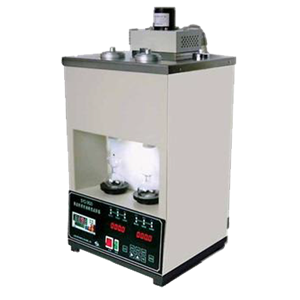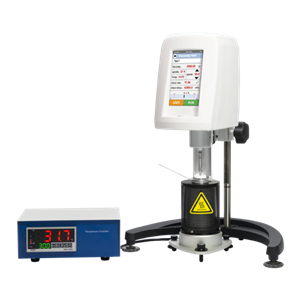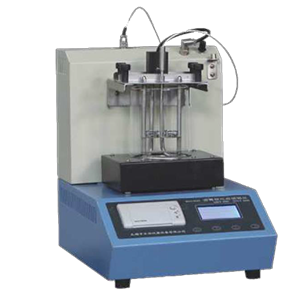-
ASTM D2170 Viscosity Of Asphalts By Vacuum Capillary Viscometer
the kinematic viscosity characterizes flow behavior. the method is used to determine the consistency of bitumen as one element in establishing the uniformity of shipments or sources of supply. the specifications are usually at temperature of 60 and 135℃.
Send Email Details -
-
ASTM D2171 Apparatus for Viscosity of Asphalts
KN-2171 Apparatus for Viscosity of Asphalts conforms to ASTM D2171 Standard Test Method for Viscosity of Asphalts by Vacuum Capillary Viscometer. The viscosity at 60℃ characterizes flow behavior and may be used for specification requirements for cutbacks and asphalt binders. This time is measured for a fixed volume of the liquid to be drawn up through a capillary tube by means of vacuum, under closely controlled conditions of vacuum and temperature. The viscosity in Pascal-seconds is calculated by multiplying the flow time in seconds by the viscometer calibration factor.
Send Email Details -
ASTM D5 Penetration Of Bituminous Materials
the penetration test is used as a measure of consistency.higher values of penetration indicate softer cnssistency
Send Email Details -
ASTM D2872 Rolling Thin Film Oven Test
this oven indicates approximate change in properties of asphalt during conventional hot-mixing ar about 150℃ as indicated by viscosity and other rheological measurements.it yields a residue which approximates the asphalt condition as incorporated in the pavement.if the mixing temperature differs appreciably from the 150℃ level. more or less effect on properties will occur. this oven also can be used to determine mass change,which is a measure of asphalt volatility
Send Email Details -
ASTM D88 Asphalt Saybolt Viscometer
KN-88 Asphalt Saybolt Viscometer is designed and made as ASTM D88 Standard Test Method for Saybolt Viscosity. It covers the empirical procedures for determining the Saybolt Universal or Saybolt Furol Viscosities of petroleum products at specified temperatures between 21 and 99℃ (70 and 210℉).
Send Email Details -
ASTM D4402 Rotational Viscometer for Asphalt Viscosity
KN-4402 Rotational Viscometer for Asphalt Viscosity conforms to ASTM D4402 Standard Test Method for Viscosity Determination of Asphalt at Elevated Temperatures Using a Rotational Viscometer. A rotational viscometer is used to measure the apparent viscosity of asphalt at elevated temperature. The torque on the apparatus-measuring geometry, rotating in a thermostatically controlled sample holder containing a sample of asphalt, is used to measure the relative resistance to rotation. The torque and speed are used to determine the viscosity of the asphalt in pascal seconds, millipascal seconds, or centipoise.
Send Email Details -
ASTM D36 Automatic Bitumen Softening Point of Asphalt (Ring-and-Ball)
KN-36 Apparatus for Softening Point of Asphalt (Ring-and-Ball Test apparatus) conforms to the ASTM D36 Standard Test Method for Softening Point of Bitumen (Ring-and-Ball Apparatus). The apparatus covers the determination of the softening point of bitumen in the range from 30 to 160°C [86 to 320°F] using the ring-and-ball apparatus immersed in distilled water [30 to 80°C] or USP glycerin (above 80 to 160°C).
Send Email Details

